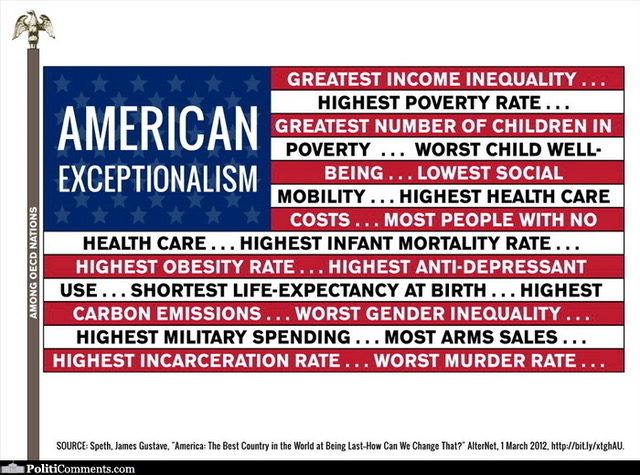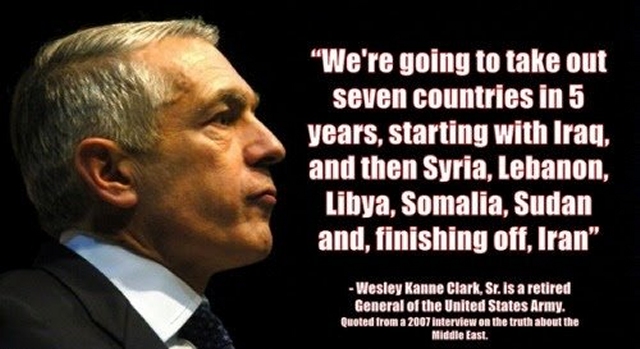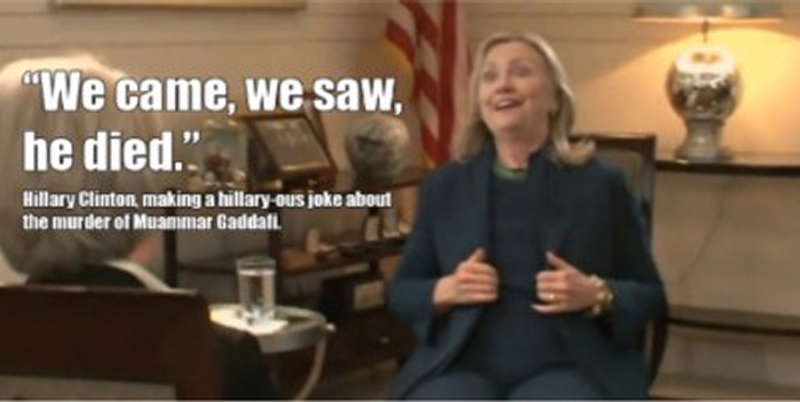
Most Americans take pride in believing that America is the exceptional nation. John Adams, the second president, was the first to have this grandiose vision — “A nation that should never do wrong must necessarily govern the world.” Hillary Clinton did him one better 223 years later in 2016 when she was running for president with her insistence that “America is great because America is good.” Recently Mike Pompeo, Secretary of State, put another spin on America’s exceptional power when he threatened to help bring about regime change in a sovereign nation —“the time is NOW for a return to democracy in Venezuela,” a clear reference to U.S. dogma that a coup will produce democracy (hasn’t happened yet though the U.S. keeps trying). Days ago, VP Pence turned the heat up by labeling the democratically elected President Maduro a “dictator,” and declaring US support for a renegade Venezuelan lawmaker to overthrow the “usurper.” Here we go again, another day, another bald-faced US attempt to have it our way in a sovereign nation.
The permanent hold of exceptionalism on the minds of Americans can be chalked up to a public education system that indoctrinates America’s youngest citizens. Most middle and high school textbooks are built around the same load of clap trap — “The United States has been a kind of Salvation Army to the rest of the world: throughout history it has done little but dispense benefits to poor, ignorant, and diseased countries. The U.S. always acted in a disinterested fashion, always from the highest of motives; it gave, never took.” (typical textbook verbiage courtesy of Frances Fitzgerald)
Good intentions are the excuse for some dreadful foreign escapades like the 50 foreign governments American leaders have tried to overthrow, the 30 countries that have been the victims of deadly U.S. bombing raids, the 50 foreign leaders the CIA has tried to assassinate, and the democratic elections it has sought to suppress in 30 countries (statistics courtesy of the late historian William Blum).
How often have the American people heard a succession of U.S. presidents and political leaders excuse bad behavior by insisting the U.S. meant well. General Mattis, ex- Secretary of Defense, was heard to mutter as he was tripping over the welcome mat on his way out the door —“We are the good guys. We’re not the perfect guys, but we are the good guys.” And so we’re doing what we can.” The apotheosis of this disingenuous thinking belongs to another knucklehead, George H.W. Bush who in 1988 declared — “I’ll never apologize for the United States of America, never. I don’t care what the facts are.” This logical fallacy was meant to explain why the U.S. categorically refused to apologize for the downing of a civilian Iranian airline, the Vincennes, by a U.S. warship. The toll: 290 innocent civilians. The audience response to his declaration? Shock? Horror? A chorus of boos? Actually, a standing ovation.
That wasn’t the only war crime George H.W. Bush gets credit for. Here’s a memorable attempt by Colin Powell, the chairman of the Joint Chiefs of Staff at the time, to whitewash Bush’s invasion of Panama— “[The U.S. has] so many friends in the Pacific because of our values, our economic system, and our altruism.”
Fifty-eight years ago, British historian Arnold Toynbee, gauged the far reaches of America’s delusionary thinking: “America is today the leader of a world-wide anti-revolutionary movement in defence [sic] of vested interests. She now stands for what Rome stood for. Rome consistently supported the rich against the poor…Rome’s policy made for inequality, for injustice, and for the least happiness of the greatest number.”
The exceptional nation stands tall at all times, apologies, regrets, off the table. Take the case of World Bank chief economist, Larry Summers, ex-Harvard President, and his nifty solution for disposing of global waste— “…the economic logic behind dumping a load of toxic waste in the lowest-wage countries is impeccable.” This load of elitist crap earned him a cabinet post (Treasury Secretary) in President Clinton’s administration.

Bill Clinton wasn’t finished handing out rewards to undeserving scoundrels. As Clinton’s U.N. ambassador, Madeleine Albright gave a televised interview in which she was asked about the half million Iraqi children who died as a result of U.S. sanctions— “I think this is a very hard choice but…we think the price was worth it.” Soon after Clinton appointed her Secretary of State.
Vice President Gore whose braying about climate change netted him a Nobel, an Oscar, and a personal fortune of $300 million, was no outlier when it came to spouting the exceptional nation creed. Responding to the AIDS crisis in South Africa and the six million desperately poor peasants who were HIV positive, Saint Gore, with heavy financial ties to the drug industry, threatened sanctions on South Africa if they produced and/or purchased affordable generic AIDs drugs instead of the expensive rip-offs American drug companies were peddling. His excuse, a classic non-sequitur in the mode of American exceptionalism — “I love this country. I love the first amendment.”
In order to make the exceptional nation logic believable, one other element is mandatory. An exceptional nation earns its stripes by sliming other nations’ commitment to the sanctity of human life. As the U.S. was getting its ass handed to it in Vietnam, General William Westmoreland had a ready excuse —whereas an innate regard for the life of its soldiers prompted the U.S. to hold back from victory, (that regard overlooked the 58,000 U.S. soldiers who died and the 304,000 who were wounded), those noble sentiments didn’t apply to the North Vietnamese— “The Oriental doesn’t put the same high price on life as does a Westerner. Life is plentiful. Life is cheap in the Orient.”
Media noteworthy David Lawrence went the full Monty in toasting exceptional America — “What the U.S. is doing in Vietnam is the most significant example of philanthropy that we have witnessed in our time.
In a different war in a different time with similar carnage then-President George W. Bush bewailed the inhumanity of the Iraqi government — “We’re dealing with an enemy that has no conscience. Today…there was a car bomb near a school. These people are brutal…the exact opposite of Americans. We value life and human dignity. They don’t care about life and human dignity. Pity President Bush didn’t think to ask the relatives of the 200,00 Iraqis killed in the U.S. (illegal) invasion or the millions made homeless about America’s “good intentions.” He left it to his press secretary, Marlin Fitzwater to deliver the coup de grâce when an American plane bombed an air raid shelter incinerating hundreds of Iraqis: “We don’t know why civilians were at that location (Right what in God’s name would civilians be doing in an air raid shelter while the U.S. was bombing the bejesus out of their country?) but we do know that Saddam Hussein does not share our value for the sanctity of human life.”
To sum up America’s vision of the chasm that exists between her self-proclaimed reverence for freedom and the sanctity of human life as opposed to the cultural norms of other countries, the Department of Defense issued the following statement in 1999 (shortly after President Clinton’s 88-day bombing spree of the former Yugoslavia which destroyed a nation and killed thousands of civilians). “We should expect conflicts in which adversaries because of cultural affinities different from our own will resort to forms and levels of violence shocking to our sensibilities.”
Embedded in the gospel of the exceptional nation is the disdain with which most U.S. policymakers view the United Nations. John Bolton, a retread from the neocon lunatic fringe now serving as Trump’s national security advisor, is a prime example. While serving as George W. Bush’s UN ambassador, he did not mince words when it came to the UN — “there is no United Nations. There is an international community that occasionally can be led by the only real power left in the world, and that’s the United States, when it suits our interests.… [If the U.N. building] lost ten stories it wouldn’t make a bit of difference.” Aside from their painful stupidity, these sentiments clash with U.S. public opinion —88% (98% Democrats, 80% Republicans) of Americans want the U.S. to maintain an active role in the U.N.

The transformation of the U.S. from its beginnings as a republic to its debut on the world stage as a national security state shortly after World War II reaches its climax as it becomes an empire intent on world hegemony. Maintaining an empire doesn’t come cheap as expenditures to police the planet, invade sovereign nations that get out of line and carry on multiple wars drain the treasury while the funds for domestic priorities diminish (think pay-go).
Where do we go from here? Negotiations have become an exercise in bullying. Do what we say or we’ll topple you or maybe even bring you (our version of) democracy. Expect the U.S. to continue to have cosy relationships with the worst dictators in the world on the grounds of maintaining stability, to flaunt U.S. power and might at the drop of a hat, to express no regret for foreign policy blunders (the invasion of Iraq, the no-fly zone over Libya) and to continue to invoke its imaginary superiority in the human rights department.

Perhaps he time has come for the U.S. to rethink its place in the world. Rejoin the community of nations, take care of “family business” —the 78% of working Americans forced to live paycheck to paycheck, the rotting and crumbling infrastructure which poses a threat to the lives of thousands of Americans and the forty million Americans, including twelve million children who lack “consistent access to enough food for an active, healthy life” (US Department of Agriculture). It’s time to end seventeen years of fruitless war in Afghanistan, call a halt to the spread of perpetual war now going on in eight countries and take a hard look at what happens to the young people the U.S. sends to fight its wars. Since 1982, more than one-third (35%) of U.S. mass shooters have been military veterans. (courtesy Paul Street)
Why hang on to dreams of empire when most of the world rejects that notion. Why not listen to thoughtful Americans in all eras who equate exceptionalism with aggression and oppression? “From the dawn of history the oppressor has always insisted that oppression was good for the oppressed.” (1908). “Each act of aggression, each new expedition of conquest is prefaced by a pronouncement containing a moral justification and an assurance to the victims of the imperial aggression that all is being done for their benefit (1922).” Powerful states have quite typically considered themselves to be exceptionally magnificent, and the United States is no exception to that.” (Noam Chomsky 2010).
Being an exceptional nation exerts a killing toll —on the American people, the rest of the world’s people and the planet. Is it worth it?
Where have all the soldiers gone, long time passing?
Where have all the soldiers gone, long time ago?
Gone to graveyards, everyone. When will they ever learn?
797 total views, 1 views today
